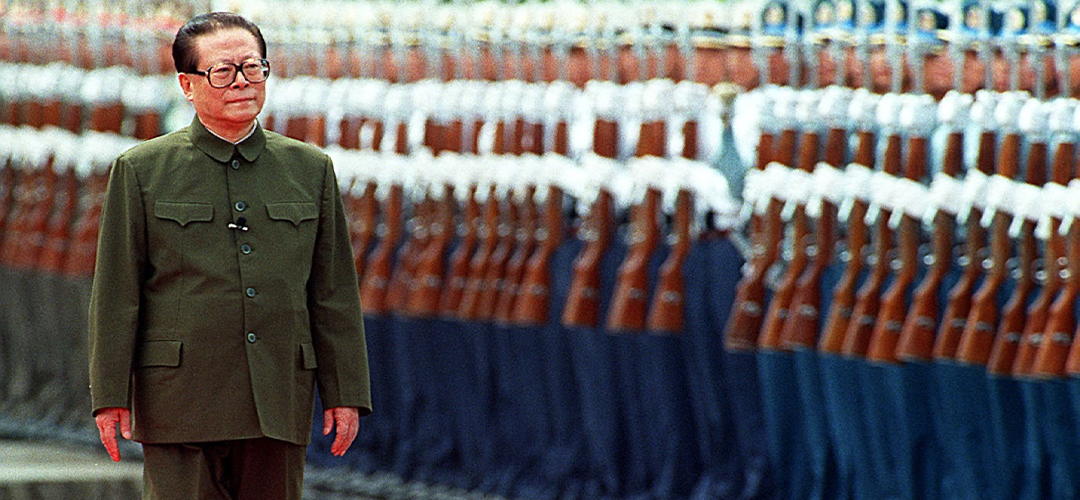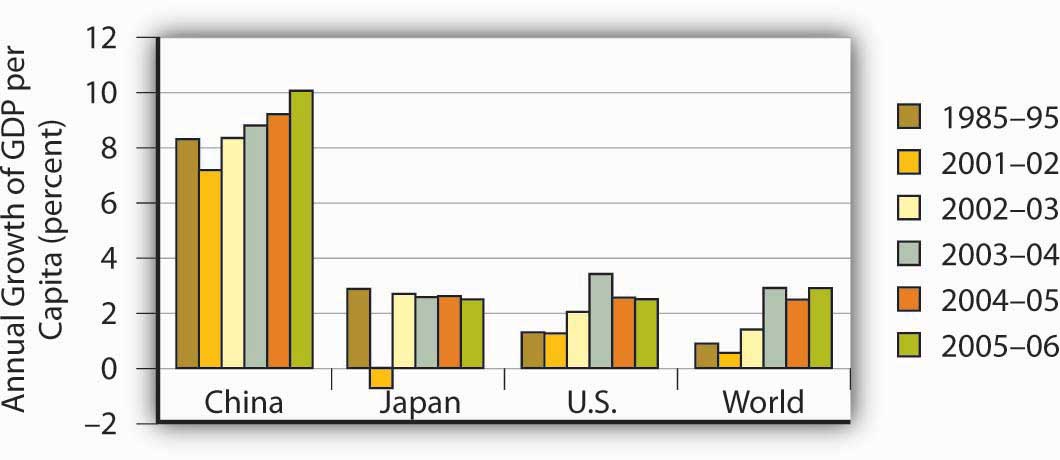REMINISCENCES OF JIANG ZEMIN
December 10, 2022 | Expert Insights

On November 30th, former Jiang Zemin (Paramount leader& Chairman of CCP, 1989 -2002, Chairman of CMC 1989-2004 and President of China 1993-2004) died at the ripe old age of 96. He came to power after the tumultuous period just after the Tiananmen Square massacre and played a pivotal role in calming a country threatening to implode. He is also credited with leading the country to its present near-superpower status.
Many Chinese would quietly mourn the passing of a leader who was instrumental in uniting the country after it was on the verge of a massive civil disobedience movement and succeeded in taking away from disruption to economic success. It is a strange coincidence that before passing away, Jiang Zemin would have witnessed widespread public disobedience again, directly challenging its leaders' authority.
His relatively low profile and willingness to exit at the end of his tenure would endear him to those in China and outside who are wary of Xi Jinping’s one-man rule.
Background
Following the 1989 Tiananmen Square massacre, Deng Xiaoping handpicked Mr Jiang to lead the Communist Party. Mr Jiang guided China through a period of rapid economic expansion. Mr Jiang was instrumental in Mr Xi's installation as the leader.
Jiang was a great Marxist, statesman, military strategist, and diplomat, as well as a seasoned communist combatant and a standout figurehead for the noble cause of socialism with Chinese characteristics. Between
Under his leadership, the nation handled a string of significant international events that affected China's security and sovereignty. He overcame challenges and risks that arose in the political and economic spheres and those brought on by natural disasters. He kept China's reform, opening-up, and socialist development desire moving forward in the right direction.

Analysis
No doubt, Jiang and his administration will be remembered for two things. One is his willingness to take political risks to advance reforms in critical industries like state-owned businesses and the grave social welfare system. Two, his readiness to loosen authoritarian control to promote the growth of the arts, sciences, education, innovation, and entrepreneurship. Both called for skilful political handling. There was a delicate balance between loosening restrictions while prohibiting organised opposition, growing the party's political base while preventing the dilution of the party's core beliefs, and allowing more incredible intellectual and religious freedoms while always remaining within the unwavering framework of the party's leadership.
Jiang was equally concerned with China's reputation abroad. He had no illusions about the West, but he charmed the western leaders into thinking that China would be a "responsible stakeholder" in a free world order led by the West if only the West assisted them in developing without pressuring them to shift too rapidly.
Other noteworthy accomplishments of China under Jiang's presidency include regaining control over Hong Kong and Macao, surviving the Asian financial crisis in 1997–1998 and winning the bid to host the 2008 Olympics in Beijing. However, probably most significantly, China joined the WTO in 2001.
Conversely, Xi started from a strong position and ruined China's reputation. In addition to taking extreme anti-pandemic measures, Xi's administration has also encouraged aggressive and combative behaviour on the part of Chinese officials abroad and has engaged in statecraft that heavily relies on economic coercion and military intimidation. He began by burying priceless coral reefs behind mounds of sand to construct military outposts in the South China Sea territorial waters. This crushed hopes that Beijing would look for a middle ground instead of asserting Chinese sovereignty over the South China Sea within the "nine-dashed line." Additionally, the Chinese military increased their aggressive actions in the area.
China's global reputation suffered a severe deterioration in the industrialised world, and its actions also caused resentment in the Global South. Under Xi, using China's economic might to intimidate or penalise trading partners over political differences has become routine. Beijing simultaneously heightened tensions with Taiwan, India, Australia, Japan, and the United States. Xi has firmly established China as an ally of international pariahs, namely the Kim regime in North Korea.
It should be no surprise that China's actions press foreign governments to cut ties with the country and increase anti-Chinese collaboration, from the AUKUS and the Quad to preparations for a possible conflict in the Taiwan Strait. Due to Xi's apparent hubris, China's potential economic development trajectory could be negatively impacted by the decoupling of the economy and technology.
Hence, nostalgic love for Jiang has recently been expressed by some Chinese. In contrast to the actual and symbolic lockdown Xi has imposed upon China, Jiang has come to be associated with a brighter and more hopeful time.
Assessment
- Jiang assisted in laying the foundation for a socialist market economy through market reforms and foreign trade when China was at a crucial turning point in 1989.
- With Jiang's passing, Xi neither anticipated that his position of power would be so openly questioned or his legacy would be instantly compared to that of a forerunner whose reign had been all but buried.
- This new pattern of local discontent will put Mr Xi's administration to the test at a crucial time when China is attempting to relax Covid restrictions while trying to prevent an uncontrolled outbreak of illnesses.








Comments